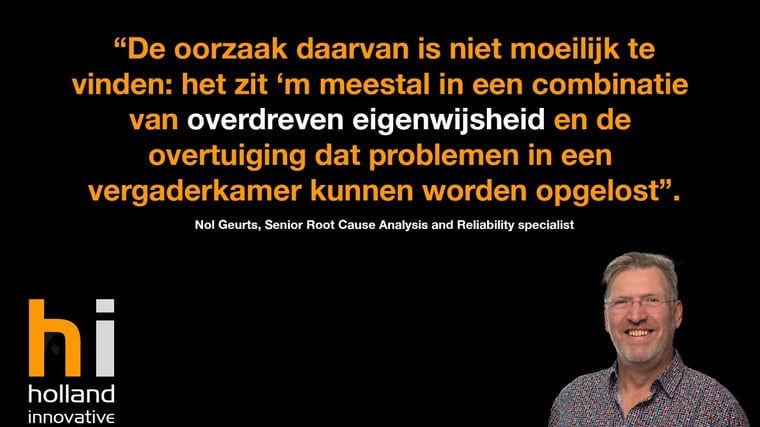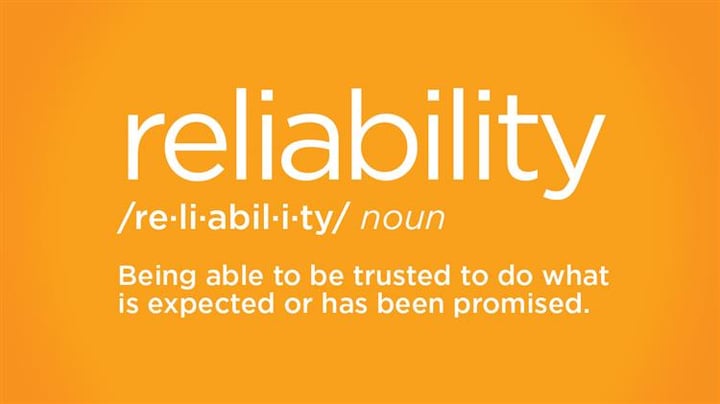Nol Geurts has experienced it more often than he'd like: it can sometimes take many months before a high-tech manufacturing company is willing to admit that a problem cannot be solved on its own. Despite the use of proven methodologies like Six Sigma, and despite having Green Belt or Black Belt expertise, they are at a standstill. Eventually, Holland Innovative receives a call requesting one of their Root Cause Analysts to be sent over.
Geurts understands that often a lot of time is lost without getting any closer to a solution. "The reason for this isn't hard to find: it's usually a combination of excessive stubbornness and the belief that problems can be solved in a meeting room. Both aspects hinder an effective approach."
The first step for Geurts and his colleagues is always to get the client to accept that there might be a theoretical chance that there's another truth than theirs. "I put it very cautiously, because that's how it goes in practice. Such a company owner or department head doesn't understand what he doesn't understand. He's been there for years, and it's very understandable that he has come to believe so much in his own truth that there's no room for another. And yet, that's necessary. In very small steps, they need to be guided to a path they hadn't seen themselves. Only this way can the cycle be broken."
Hard facts are Geurts' main weapon in every assignment he performs as an RCA project manager. He has experienced it so often that he could make a blueprint of it. Where 'management truths' always compete with the real world, and he has built his own methodologies to break the deadlock. It's about asking the right questions that can make such a manager doubt. And he has to accept that with his Root Cause Analysis, he's not always going to be popular in such a company. "I am the commando, but around me, I often see people stuck in their own belief - they don't provide space for the sharpshooter to do his job."
Geurts wants to wake them up. "So I ask them, for example, if they can imagine that there's more than what's settled in their heads. With that, I can open them up to a reality that doesn't occur in their daily processes and that might not even be in their manuals. When they're that far, I can usually also convince them that they never directly arrive at a solution, but always first, like a real Sherlock Holmes, have to go to the source of the problem. Turn over stones, keep all options open. And especially, do not close yourself off from the routes that don't occur in your own frame of thinking."
Interested in how Holland Innovative can help you? Feel free to contact Merel Hartman without obligation.




.jpg?width=200&name=Holland%20Innovative%20summer%20academy%20-%20Project%20Management%20Masterclass%202%20(2).jpg)